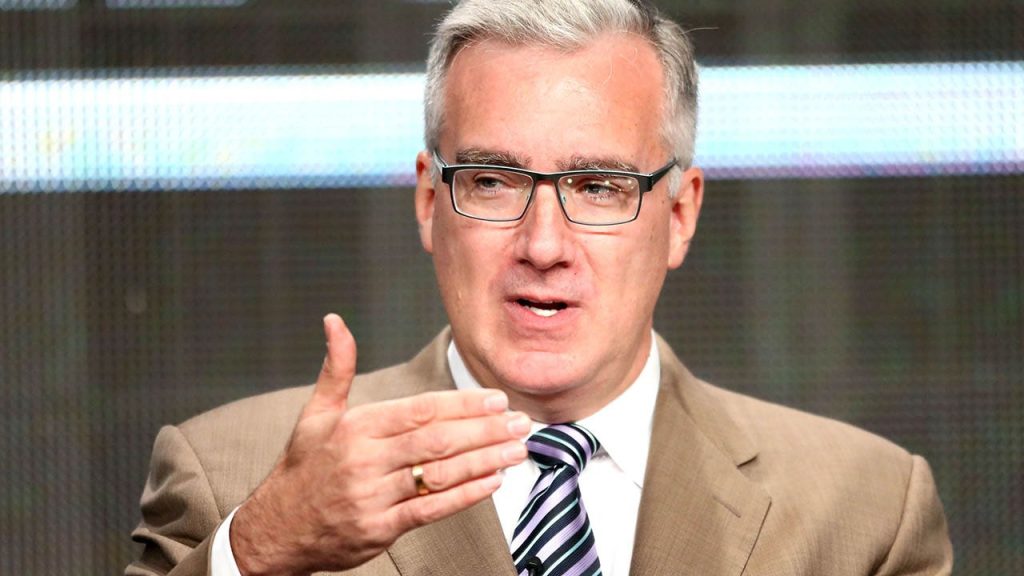The Olbermann Controversy: A Reaction to Kimmel’s Suspension and Kirk’s Assassination
In the wake of Charlie Kirk’s tragic assassination, a fresh controversy erupted when former ESPN and MSNBC personality Keith Olbermann made inflammatory comments on social media that shocked many Americans. Responding to Sinclair Broadcast Group’s statement that ABC’s suspension of Jimmy Kimmel’s show was “not enough” following Kimmel’s controversial remarks about Kirk’s assassin, Olbermann wrote a message that many found deeply disturbing: “Burn in hell, Sinclair. Alongside Charlie Kirk.” This harsh statement, directed both at a major media company and a conservative influencer who had just been murdered, immediately sparked widespread condemnation across social media platforms.
The controversy sits within a larger context of media reactions to Kirk’s assassination. Before Olbermann’s comments, late-night host Jimmy Kimmel had made controversial remarks on his show, accusing conservatives of reaching “new lows” by trying to characterize the 22-year-old suspect, Tyler Robinson, as having left-wing motivations. “We hit some new lows over the weekend with the MAGA gang desperately trying to characterize this kid who murdered Charlie Kirk as anything other than one of them and doing everything they can to score political points from it,” Kimmel said on his show. These comments stood in stark contrast to official statements from both FBI officials and Utah Governor Spencer Cox, who had confirmed that Robinson held what they described as a “leftist ideology” and had become increasingly radicalized in recent years. Investigators had also revealed that Robinson had been in a romantic relationship with a transgender partner.
The fallout was swift for Kimmel’s show. Nexstar Media Group, which owns hundreds of television stations across America, announced it would preempt Kimmel’s ABC show on its affiliates “for the foreseeable future,” replacing it with alternative programming. Sinclair Broadcast Group went further, issuing a statement through Vice Chairman Jason Smith that called Kimmel’s remarks “inappropriate and deeply insensitive at a critical moment for our country.” Smith emphasized that “broadcasters have a responsibility to educate and elevate respectful, constructive dialogue in our communities” and even referenced FCC Chairman Carr’s remarks on the incident, suggesting the need for “immediate regulatory action to address control held over local broadcasters by the big national networks.” This strong corporate response highlighted the serious nature of Kimmel’s comments in the context of a national tragedy.
Olbermann, who has a history of making provocative political statements, doubled down on his defense of Kimmel, declaring that “Nothing Jimmy Kimmel said was untrue” – despite the clear contradiction between Kimmel’s characterization and the official investigation findings. This pattern of inflammatory rhetoric from Olbermann represents a troubling example of how public discourse can deteriorate in the aftermath of violence, particularly when political figures become targets. Rather than acknowledging the humanity of the victim and the gravity of political violence, Olbermann’s comments seemed to perpetuate the very kind of divisive rhetoric that many leaders have warned against in our increasingly polarized political landscape.
The broader reaction to both Kimmel’s and Olbermann’s comments revealed deep divisions in how Americans interpret political violence. While some Democratic lawmakers and celebrities like Ben Stiller criticized ABC for suspending Kimmel, many others viewed the suspension as an appropriate response to insensitive remarks about a murder victim. This split reaction demonstrates how differently Americans can perceive the same events based on their political affiliations, even when the fundamental issue – the murder of a political figure – should transcend partisan boundaries. Kirk, just 31 years old when he was killed while speaking at Utah Valley University, was mourned by thousands across the country, with vigils held in multiple states to honor his memory.
As the nation processes both the assassination and the media controversy that followed, Kirk’s funeral is scheduled for Sunday in Glendale, Arizona. The tragedy has forced Americans to confront difficult questions about political violence, media responsibility, and the tone of our national discourse. While figures like Olbermann continue to stoke controversy with inflammatory remarks, the murder of Charlie Kirk stands as a somber reminder of the potential real-world consequences when political tensions escalate beyond words. The contrasting responses to his death – from respectful mourning to continued partisan attacks – highlight the challenge America faces in finding common ground even in moments that should unite us in condemning violence and protecting the democratic principle that political differences should be settled through debate, not bloodshed.


